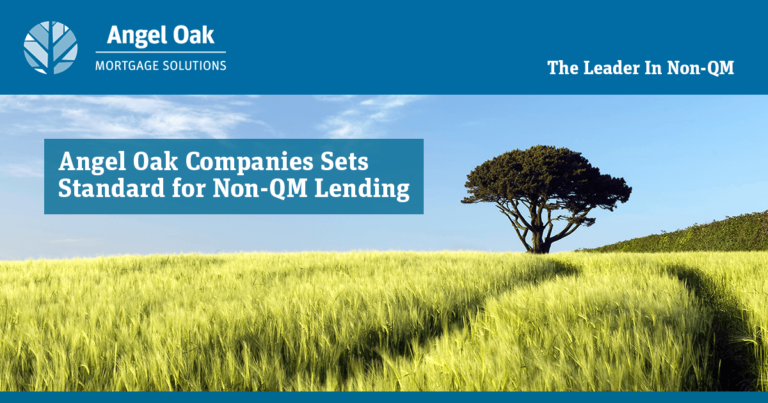

“Angel Oak built our brand on quality originations, so we want to be originating good loans that perform … but still meet the needs of the market. "It's not that it's gone to 60% LTV, it's just a tweak,” Hutchens said. For example, where Angel Oak once had a product at 90% LTV, it is now at 85%. The company is originating bank statement mortgages for business owners.įor example, on owner-occupied products, regarding those adjustments "it's more on the bottom half of the curve…it's not major, major changes," Hutchens said. Still, "the originations are coming back quickly," he said. "So we've made the loans somewhat safer than the pre-COVID loans," he said.Īlso confirming Chen's point regarding tighter guidelines was Tom Hutchens the executive vice president of production at Angel Oak Mortgage Solutions. Quontic also reduced loan-to-value ratios from pre-pandemic levels, and raised credit score requirements. They should also have Payroll Protection Program money to prove they have a viable business, Schnall said.ĭuring underwriting, Quontic does a "cursory Google check" to make sure the borrower's business has a website, that the website doesn't say the business is closed and that it is a consumer-facing business. To be considered for a loan from Quontic, the restaurant should be open for take-out and delivery to generate revenue. He gave the example of a restaurant owner, whose industry has been heavily affected by the pandemic. The non-QM market that Quontic serves includes people that have small businesses, whose income is volatile and hard to document for meeting ability-to-repay requirements.

They also attest to the fact that they understand they are not entitled to a forbearance," Schnall said. One, we're requiring all borrowers to sign an attestation basically attesting to the fact that they do not have a forbearance on any existing mortgages, that their business or employment has not been affected, that the business is up and running and is operating at levels to support the debt. "What we've done to mitigate that risk is two things.

Thus, rather than having to sell loans at distressed prices as some nonbank lenders did, it was able to hold them until secondary market pricing stabilized.īut its guideline changes are driven by concerns over forbearances, Schnall said. From March until approximately mid-July, the bank "turned off our wholesale business and dramatically curtailed our retail non-QM lending," Schnall said.īecause Quontic is a community development institution, it can keep mortgages on its balance sheet it can also use deposits and funding from that balance sheet to originate loans as well. Quontic was one of the many non-QM lenders that stepped to the sidelines after the secondary market disruption. "To date, the post-COVID-19 origination volume has been very limited, but we see loans originated were underwritten with much tighter credit box," Chen said. Texas and New York were in the area of 5% each within the non-QM universe. The next closest state was Florida, at over 15%. If delinquencies reach a certain level or remain high, the call option will not be exercised "because it doesn't make economic sense" to call the deal, Chen said.Īccording to data from DBRS Morningstar, the vast majority of loans in rated non-QM deals, over 42%, were from California, one of the current coronavirus hot spots.

Then there are the call options that many of the non-QM deals have, in which the issuer can repurchase the bonds. Some missed the first payment or two and then started paying.īut some that took the deferment "are in dire need of additional time," Schnall said. They had the money, decided they'd rather not accumulate the debt and just went ahead and paid the mortgage. Some people that asked for deferments ended up paying," said Schnall. However, any borrower who was current as of March 31 and expressed that they were impacted by COVID-19 was granted three months of payment deferments with extensions if needed, CEO Steven Schnall said.Īmong borrowers, it was a "very, very mixed bag. At Quontic Bank, a community development financial institution chartered as a bank, forbearances aren't granted to borrowers on new originations.


 0 kommentar(er)
0 kommentar(er)
